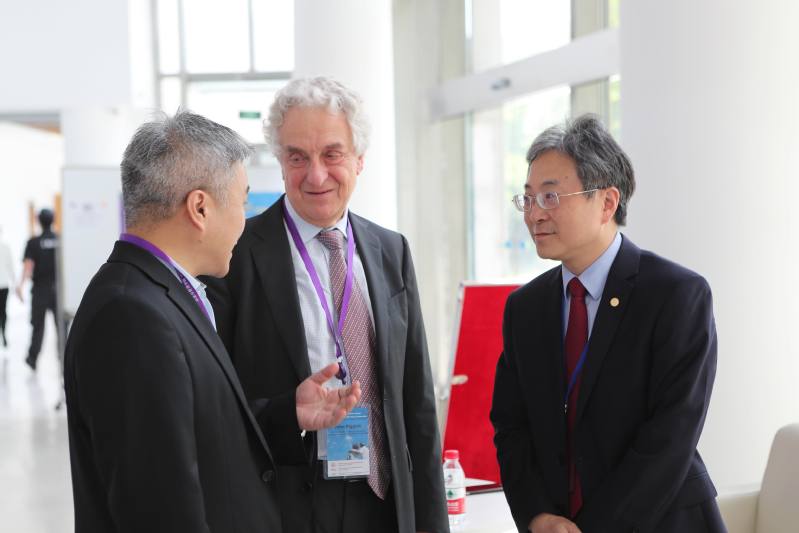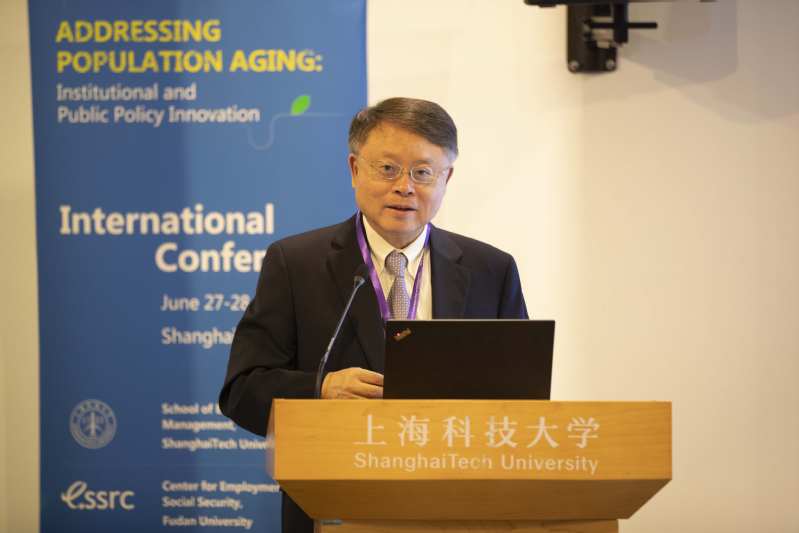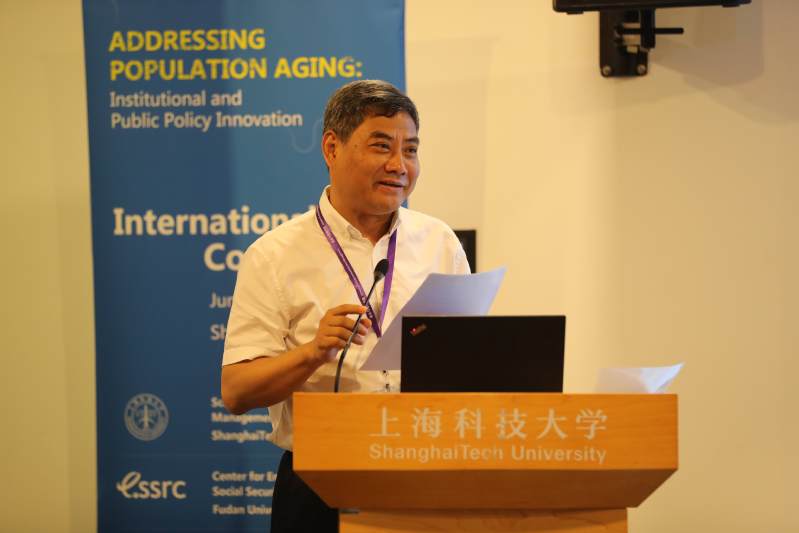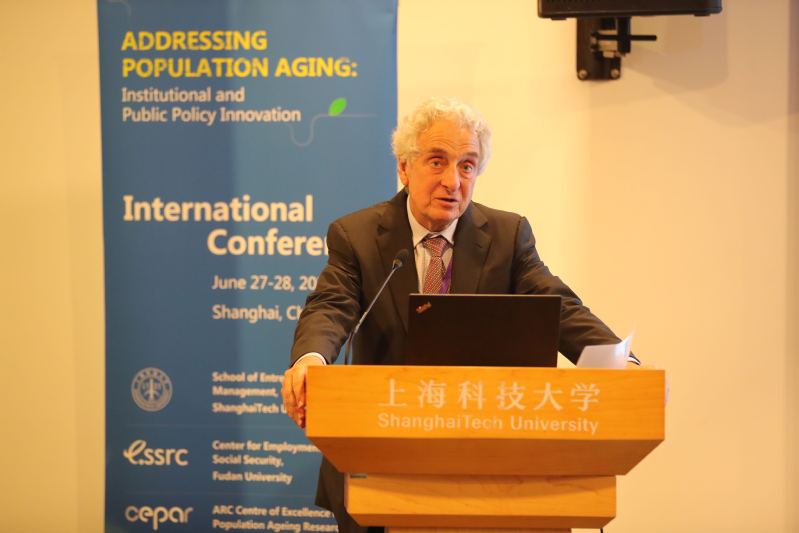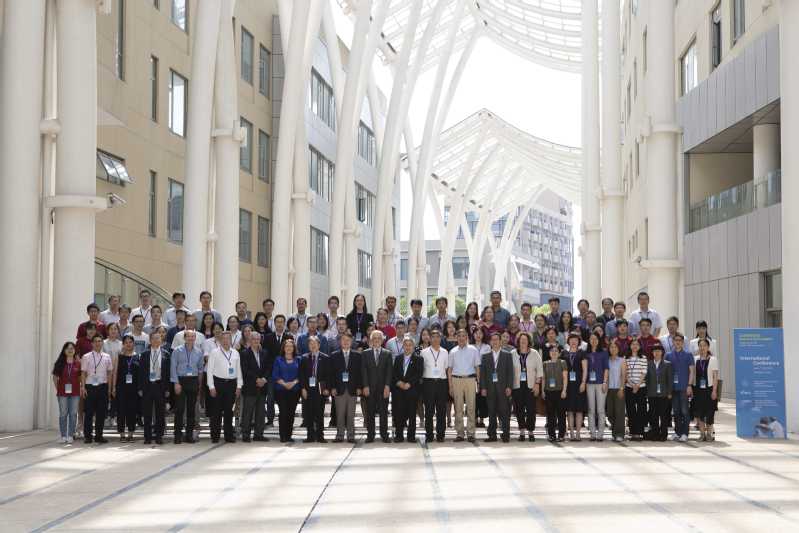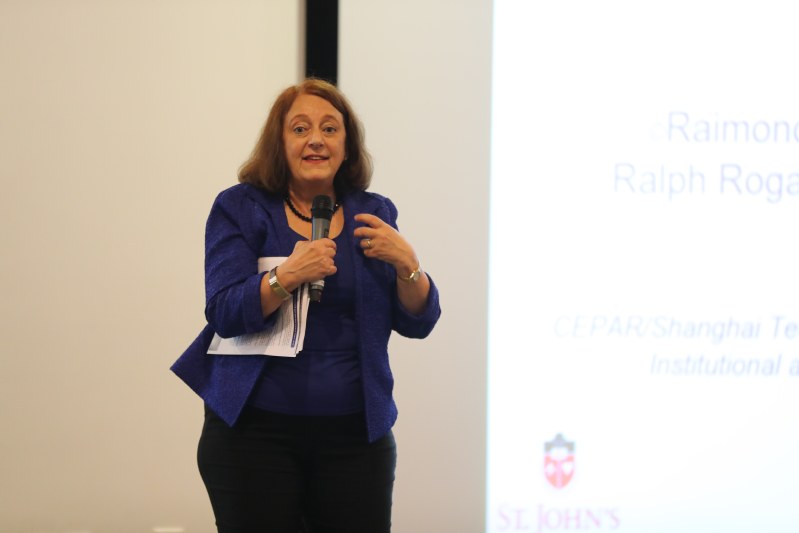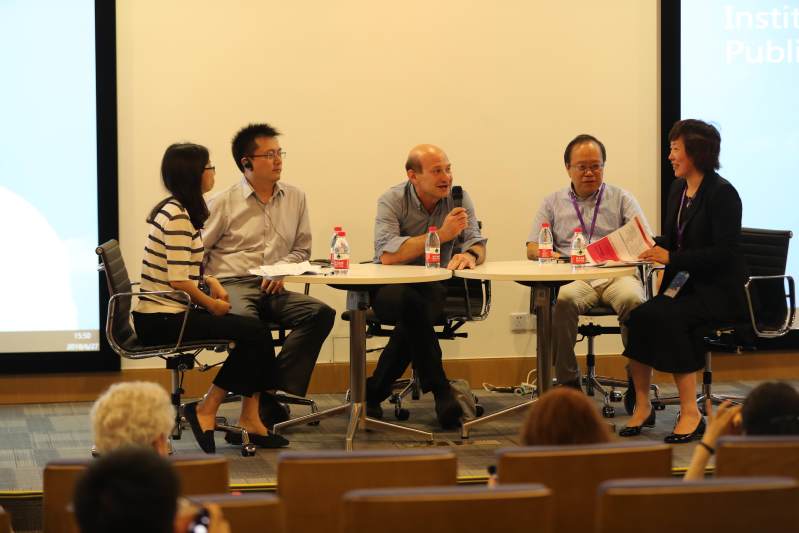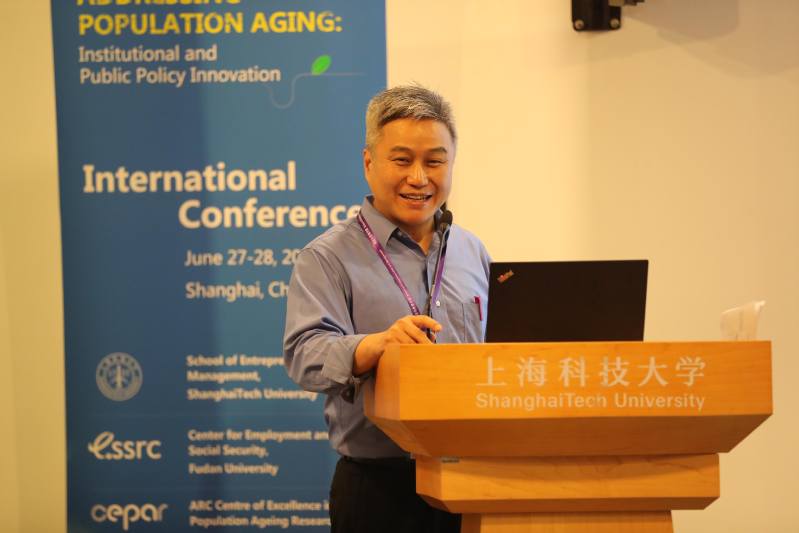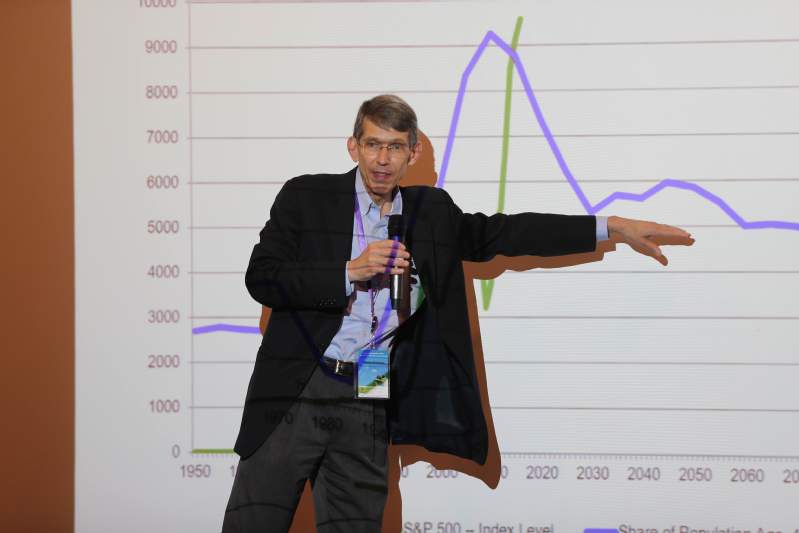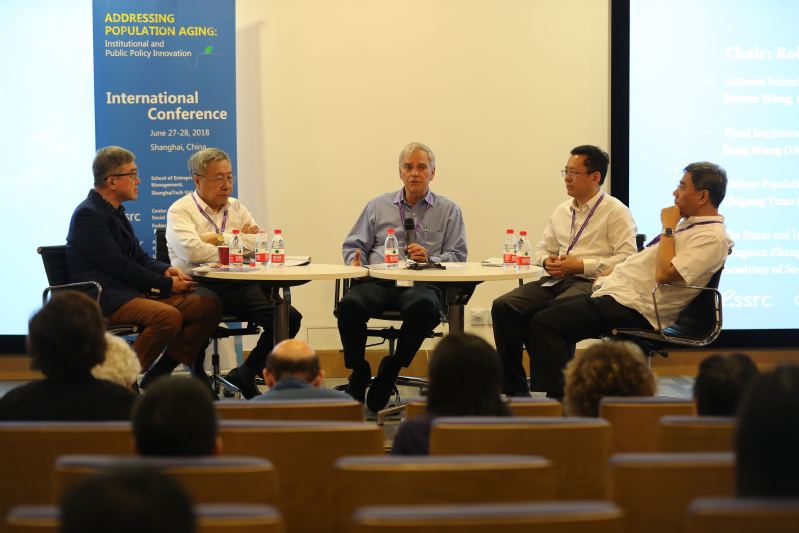On June 27-28, the School of Entrepreneurship and Management (SEM) held an international conference on "Addressing Population Aging: Institutional and Public Policy Innovation." The conference was co-organized by SEM, Center for Employment and Social Security (Fudan University) and ARC Centre of Excellence in Population Ageing Research (University of New South Wales). The one and half a day conference program included academic presentations on Financial Innovation and Financial Behavior, Multi-Pillar Pension System, Intergenerational Interactions, and Impact of Population Aging, as well as two policy panel discussions on "Long-Term Care and Long-Term Care Insurance" and "Social Security Reform."
The conference program featured twenty-four international experts, economists, and government officials, focusing on the topics of pension system reform and its impact, flexible retirement systems and policies to improve the labor force participation of elder workers, technological revolution, income inequality and income distribution, elderly healthcare reform, long-term care needs, service delivery, long-term care insurance, and impact of wealth management system on pension burden. The conference was hosted by Haming Fang, Dean of the School of Entrepreneurship and Management and Professor of Economics at the University of Pennsylvania. At the beginning of the conference, ShanghaiTech president Mianheng Jiang, Zhigang Yuan (Fudan University's Dean of School of Economics) and John Piggott (Director of The ARC Centre of Excellence in Population Ageing Research, University of New South Wales) made opening remarks.
Olivia S. Mitchell, a distinguished professor at the Wharton School of the University of Pennsylvania, spoke on the topic of financial innovation and financial behavior, based on her studies on the effect of a lump sum incentive for delaying social security claim age which could also extend people's working lives, raise social security tax revenue and potentially enhance the system solvency. Professor Hazel Bateman of University of New South Wales described the results from a survey which showed the huge potential for reverse mortgage products in China, if the product was properly designed. Professor Yaohui Zhao from Peking University gave a detailed overview of the pension system in China. She described that the social pension system in China suffers from fragmentation, deficit and unequal distributions; she argued that the chance for China to adopt a fully funded individual accounts system might have been lost, but we still could use the Notional Defined Contribution (NDC) system as a transitional method, putting all pension contributions into individual accounts and letting a central agency take over individual accounts.
On the topic of long-term care and long-term care insurance, the expansion of long-term care insurance could stabilize the expectations of the long-term care market, and increase capital infusion into the long-time care service delivery, and the increased supply could lead to a decrease in expenditures for elderly care, said Hong Xu, Director of Designated Medical Supervision Department, at Shanghai Municipal Bureau of Human Resource and Social Security (Shanghai Medical Insurance Office). He introduced Shanghai pilot long term care insurance program, launched in three districts of Shanghai in January 2017, and extended to the whole city in January 2018, covering three million elderly people in Shanghai. The program has stabilized the market expectation, and attracted a lot of private enterprises coming into elderly health sector, he said.
Bei Lu, a research fellow of ARC Centre for Excellence in Population Ageing Research, University of New South Wales, summarized the case study of Qingdao, which launched China's first long-term care insurance policy in 2012. The policy was to address the increase of disabled elderly caused by the population aging. She recommended the integration of the long-term care insurance into basic medical insurance, and the integration of long-term care with medical care, as practiced in Qingdao. There is still about 10-15 years of strong demand for long-term care services in China. Currently, it is urgent to pay attention to long-term care needs in rural areas,said Lu.
On the topic of aging population impact, James Poterba, a prominent economist from Massachusetts Institute of Technology (MIT) and President of the National Bureau of Economic Research (NBER), argued that aging population shifted the nature of financial product demand and would tend to lower the returns of financial assets. Hanming Fang, Dean of School of Entrepreneurship and Management and Professor at the University of Pennsylvania, pointed out that the "growing pains" in China's social security system, such as low retirement age and fiscal imbalance, could result from the high intergenerational human capital growth, coupled with the older generation's demand for wages that are tied to the average social wages. These forces also suggest that reforms to delay retirement age might hurt the elderly's welfare because of lack of labor demand for these elderly workers.
As for the issue of intergenerational interaction, Professor Xi Chen from Yale University discussed how the National Rural Pension Scheme (NRPS) had positive effects on the short-term health status of grandchildren within the household, especially boys. Professor Chen Yi, from Jinan University, examined the long-term consequences of having fewer children in old age. He explained that having fewer children, on one hand, led to more consumption and better physical health through the quantity-quality tradeoff or more self-insurance via savings, and on the other hand, led to more depression and mental health issues because of the decrease in time accompanied by their children. Fudan University Professor Jin Feng showed that retirement induced by the mandatory retirement rules caused a 25.3 percentage point increase in the probability of men being overweight or obese; on the contrary, retirement had no significant effect on women's BMI and weight.
On the topic of multi-pillar pension system, Dr. Joelle H. Fong from National University of Singapore found that economic crisis and globalization were the two determinants of the launch of the second pillar pension reforms. Zhigang Yuan, former Dean of the School of Economics at Fudan University, emphasized that in order to better deal with the challenges of aging population, it was important to improve the level of globalization, to develop global enterprises, to further open up to the outside world, and to develop an international financial management system. Liu Tian, Professor from Shanghai University of Finance and Economics, provided evidence that social security tax evasion was impacted both by the social security contribution rate and corporate income tax rate. Higher social security contribution rates led to more social security evasion, while a higher corporate income tax rate led to less social security evasion.
This international conference resulted in deep exchanges and dialogue about the current situation of population aging, and both the success and challenges of many policies addressing aging population, both in China and abroad. The conference highlighted the significance of China's burgeoning long-term care industry and long-term care insurance system, and the need for the social security reform.
